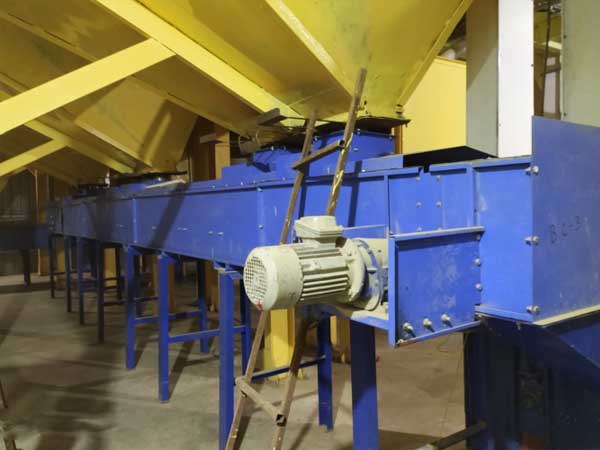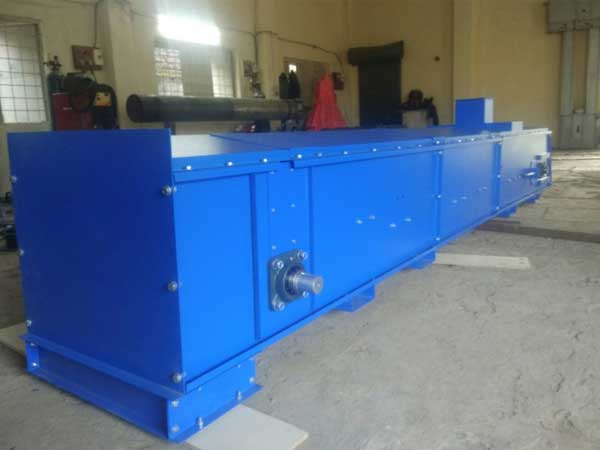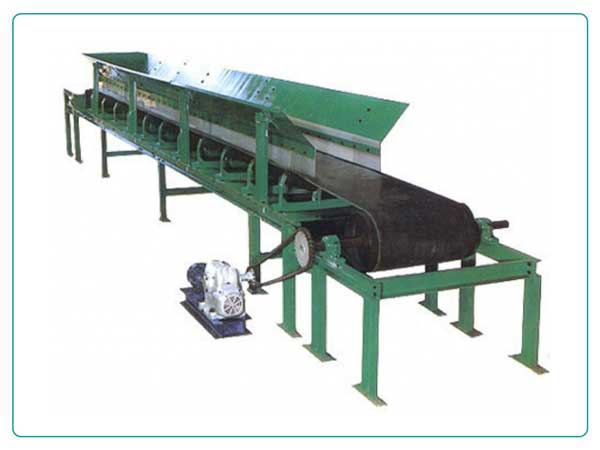Belt Conveyor Manufacturers in Pune, Suppliers and Exporters in Pune, Raipur, Hyderabad, Kolkata, Delhi, India, China, Bangladesh, Indonesia, Nepal
Prominence Systems Pvt. Ltd. is a leading belt conveyor Manufacturers in Pune, Suppliers and Exporters in Pune, Raipur, Hyderabad, Kolkata, Delhi, India, and being a top Belt Conveyor Exporters we provide our services in various countries like India, China, Bangladesh, Nepal, Indonesia, Vietnam, Thailand, Myanmar, Tanzania, Rwanda, Kenya, Uganda.
Belt Conveyor Manufacturers in India
Belt Conveyors are used for grains, fertilizer, aggregate, cement, chemical, mining conveying and elevating. Belt width range is 400mm - 1200mm. Food Grade Belt, Heat Resistance Belt, Oil Resistance Belt, Cleated Belt are incorporated in equipment feature depending on application. The main purpose of our belt conveyors is material handling. Either the side working tables or the conveyor belt can be used for quick assembly. We construct conveyors depending on the process requirements as well as the load weight and size of the various commodities that must be transported.
These belt conveyors were chosen because they are simple to use and have low running costs.
Our belt conveyors are adaptable in that they can transport a variety of objects.
With just one AC drive motor, our belt conveyors are able to transport goods over considerable distances.
Our belt conveyors can move cargo across uneven or inclining terrain.
Main Features of Belt Conveyor in India:
As we are Belt Conveyor Manufacturers in Pune, Suppliers and Exporters in Pune, Raipur, Hyderabad, Kolkata, Delhi, India, China, Bangladesh, Nepal, Indonesia, Vietnam, Thailand, Myanmar, Tanzania, Rwanda, Kenya and Uganda, following are the features.
- Low energy consumption
- High reliability and less maintenance
- Heavy duty idlers with anti-friction bearings to increase idler life and reduce horsepower requirements
- Heavy duty frames and structural supports to provide system rigidity
- Easy to install
- Zero speed switch
Following are the types of Belt Conveyors:
- Roller Bed Conveyor Belts
- Flat Belt Conveyors
- Modular Belt Conveyors
- Cleated Belt Conveyors
- Curved Belt Conveyors
- Incline/Decline Belt Conveyors
- Sanitary and Washdown Conveyors
- Specialty Conveyor Belts
Specifications of Belt Conveyor:
| Sr. No. | Model | Width | Capacity in TPH With B.D. 750Kg/m3 | ||
|---|---|---|---|---|---|
| L-SERIES | M-SERIES | H-SERIES | |||
| 1 | RBC400 | 400 | 27 | 40 | 66 |
| 2 | RBC500 | 500 | 42 | 62 | 104 |
| 3 | RBC600 | 600 | 64 | 96 | 160 |


Application of Belt Conveyor:
Belt conveyors are essential for material handling tasks in manufacturing plants, warehouses, distribution centers, and logistics facilities. They can move items horizontally, vertically, or on an incline, making them versatile for multiple types of applications. Belt conveyors are widely used in industries for transporting bulk materials, packages, and goods efficiently and reliably. Belt conveyors provide material movement, decrease manual labor, and improve efficiency in production processes. They can be personalized to meet specific requirements, such as speed control, incline/decline angles, and sorting capabilities. These conveyors can handle a wide range of materials, including grains, coal, ore, food products, and more.
Belt conveyors improve productivity, reduce manual labor, and automate material movement, all of which assist to the restructuring of manufacturing operations.
They can easily adjusted to fulfill specific requirements, including sorting capability, incline/decline degrees, and speed control.
Belt conveyors are reliable reasonably priced, and low maintenance options for long-term material handling requirements.
Belt conveyors provide businesses with increased production, better workflow, and increased worker safety.
To meet the particular requirements of each sector and application, a variety of belt materials, sizes, and combinations are available.
When all things thought of, belt conveyors are essential for streamlining logistics, enhancing productivity, and improving material movement in a variety of industrial contexts.
FAQ:
A belt conveyor is a mechanical handling system used to transport materials horizontally, vertically, or at an incline. It consists of a continuous belt that moves over a series of pulleys or rollers, allowing for the efficient and controlled transportation of goods. The belt is driven by a motor, which propels the material along the conveyor line. As the belt moves, it carries the material from one point to another, making belt conveyors suitable for various industries and applications.
Belt conveyors offer several advantages for material handling operations. Firstly, they are versatile and can transport a wide range of materials, from small components to bulky items. Secondly, belt conveyors can operate over long distances, allowing for efficient transportation across large areas. They can also be customized with various belt types and configurations to suit different material properties and handling requirements. Additionally, belt conveyors have a smooth and continuous surface, reducing the risk of damage to delicate or fragile goods.
When selecting a belt conveyor, several factors should be considered. These include the type and characteristics of the material being transported (e.g., size, weight, temperature sensitivity), the required capacity and conveying speed, the distance and incline involved in the transportation, and any specific industry requirements or regulations. Other factors include the layout and space constraints, the necessary belt width and strength, and the availability of power and control systems.
Proper maintenance and operation are crucial for the efficient and safe functioning of a belt conveyor. Regular maintenance tasks include inspecting and cleaning the conveyor belt, checking for any signs of wear or damage, and ensuring proper tension and alignment of the belt. It is important to keep the conveyor area clean and free from debris or material buildup that can affect belt performance. Operators should be trained on safe operating procedures, including emergency stop protocols and proper loading and unloading practices. Following the manufacturer's guidelines and recommendations for maintenance tasks is essential for optimal performance and extended equipment lifespan.
Yes, safety precautions are essential when working with belt conveyors. Some important measures include providing proper guarding and enclosures to prevent contact with moving parts, ensuring emergency stop buttons and alarms are easily accessible, and implementing safety devices such as sensors or switches to detect abnormal belt movement or material blockages. Regular inspections should be conducted to identify and address potential hazards, and operators should be trained on the safe handling and operation of the equipment. It is essential to follow industry standards, local regulations, and the manufacturer's recommendations for safety procedures and equipment maintenance.






